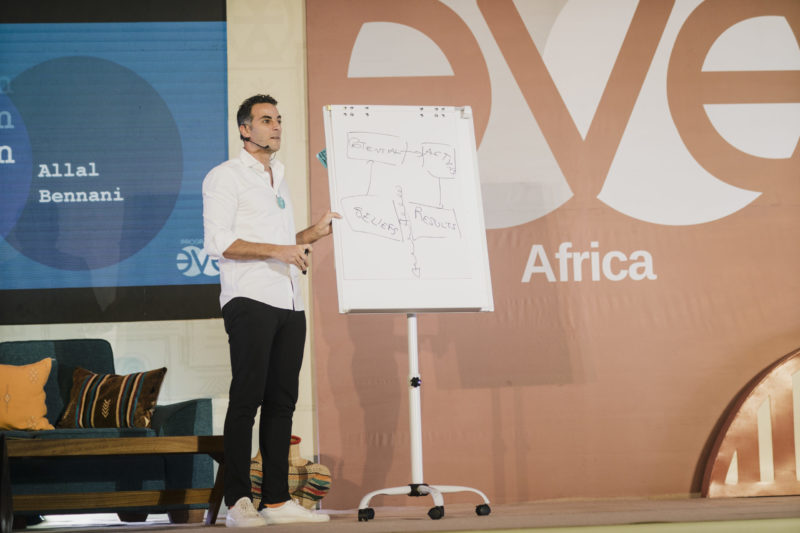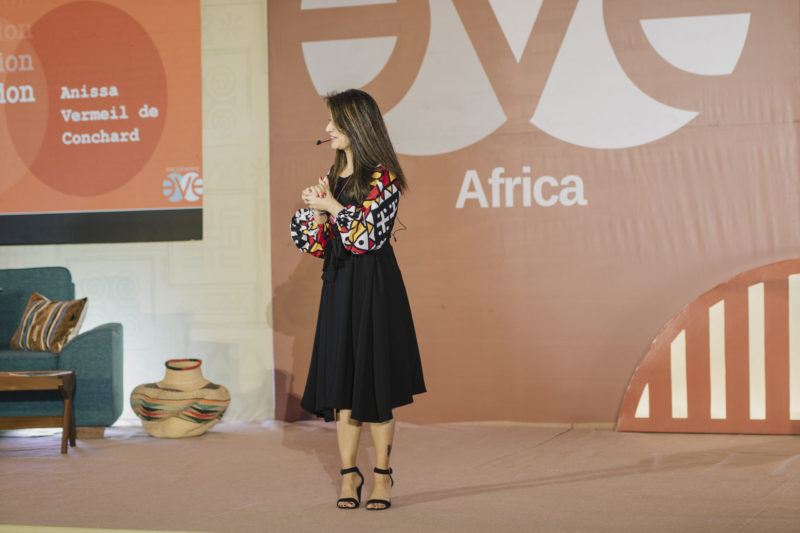“Be the change you want to change in the world”, Gandhi said. It was a call for people to take responsibility for themselves; to become an instigator of transformation in their own environment. “Relational ecology” is defined as being a sustainable approach to the relationships that people can (must?) have with those around them. The editors of the webmagazine wanted to find out more.
A metaphor borrowed from the world of environmental sciences
Welcome to the “house of intelligence”!
Relational ecology is first and foremost about ecology. Etymologically speaking, it means a “house of intelligence” and the word ecology stems from the Greek terms oikos (house, heritage) and logos (an untranslatable word encompassing many concepts such as knowledge, speech, science, understanding, relationships, etc. In short, a set of skills relating to intelligence).
Ecology as a feeling, by Thoreau
The first occurrence of the term “ecology” dates back to the writings of Henry David Thoreau, the author of a landmark essay on civil disobedience and the essential book Walden or Life in the Woods, which were published in 1849 and 1854 respectively. While the industrial revolution raged on, the philosopher and poet turned his attention to nature and various forms of life, and from a tender young age began thinking deeply about the feelings triggered in humans when they come into contact with the elements, animals, and plants, etc.
For two years, he retired to a cabin in the forest near Walden Pond in Massachusetts. He explains that he wanted to take some time out, like Rousseau affirming his need for solitude and nature, to be able to think more carefully about the world and develop deeper social relationships. In short, he wanted to indulge in some social distancing.
Inspired by transcendentalism, a philosophical and artistic trend that focuses on believing in the fundamental goodness of humans as long as they are not corrupted by the creations they have imposed on the world (religion, institutions, industry, power, etc.), he turned his thoughts to how spending time in nature and surrounded by living things could bring out the best in people: emotions that can sometimes be overwhelming; feelings, like love or optimism but also anger when something you love is damaged; values such as ethics; ideas to address current issues from a new angle.
The economy of nature, according to Darwin
The preamble to the first edition (1859) of Charles Darwin’s masterpiece, On the Origin of Species, is one of the first times ecology as a concept is mentioned, in terms of how it is the “economy of nature”. The father of the theory of evolution is actually laying the foundation for ecosystem-based thinking: all living beings are interdependent, connected by their need to feed themselves, find shelter, protect themselves, take care of themselves, and regulate their population.
If a single being is missing from this balance, will the population die out? Not quite. Darwin doesn’t claim that nature is set in stone, but rather focuses on evolution, and how it is affected by various factors. When confronted with changes in their environment, all species adapt their behavior and manners of interacting until eventually, after several generations, their very nature adapts as well.
Darwin’s idea about the economy of nature is highly appealing to utilitarians, who eagerly consider everything in terms of benefits. So ecology finds supporters in consequentialist liberalism: admittedly, it is tempting to plunder the resources of the planet as quickly as possible and achieve maximum revenue, but ultimately that’s like sawing off the branch you’re sitting on, because when all the resources have been depleted, there will be no more production anyway, and no more living beings to consume what has been produced! So we really must be careful about what we are taking from the earth, and pay attention to maintaining a relationship with our environment that encourages positive development.
Politics as applied biology, with Ernst Haeckel
Darwin’s theories were widely disseminated with the help of the German biologist Ernst Haeckel. This professor of medicine taught the theory of evolution from the beginning of the 1860s, writing and publishing many articles and books which enjoyed widespread success. When he put forward the concept of “oecology” in 1866, his ideas became very popular, and he then turned to politics and suggested that the meaning of decisions and actions is to organize relationships between living beings. Everything is ecological and everything is political. This radical vision actually did him no favors: Haeckel was accused of inspiring the racist and eugenic theories of the Third Reich. On top of that, his own ambiguities (especially his pronounced fondness for white supremacism) were of little help to those who wanted to revive his ideas.
But considering his overall approach to ecology in isolation, it actually stems from taking responsibility for ecosystems seriously. And why not add an interesting point about Haeckel’s journey? He was the first to consider psychology as an element of physiology: as a devoted monist (someone who considers that everything can be boiled down to a single guiding principle), he refused to regard the emerging science of mental behavior and processes as a separate branch of life sciences. The emotions, intimate thoughts, fantasies, impulses and passions of individuals form part of their being and must be considered equally with other factors in how people interact with their environment.
“Relational ecology”, a productive concept
In the 1980s and 90s, the psychologist Jacques Salomé popularized the expression “relational ecology” before he established his ESPERE method, which was designed to improve communication between individuals using personal development techniques.
“Relational poetry”
He was a graduate in social psychiatry and began his career as a specialized educator at a center for young people in difficulty. His first book was published in 1972 and is a training manual designed for his colleagues. In it, he highlights the communication issues that cause suffering in young people who have lost social contact, and also covers the conflictual, even destructive relationships they have with those closest to them. The diagnosis has already been put forward by many psychologists, including Sophie Morgenstern and those who followed in her footsteps, including French education expert Françoise Dolto: people who cannot express what they are feeling develop behavior that is aggressive to both themselves and other people.
Salomé founded a training center known as Le regard fertile (the fertile view) which provides social workers with innovative techniques, often based on play, designed to create connections and enhance communication. Most of his exercises are named using the adjective “relational”, as is the subtitle of his second work, Je t’appelle tendresse, which has been called a “book of relational poetry”. Artfully wielding aphoristic formulas, he garnered instant adoration from the general public, who found his psychology to be accessible and appropriable, indulgent and optimistic, humble and full of common sense, completely different from either the theorists who published endless tomes packed with footnotes, or professional psychologists who murmured sleepily while their clients talked about their childhood and sobbed their hearts out.
A whole series of works including storytelling, prose poetry, a collection of words of wisdom and popular science followed (on marital relationships, education, friendships, work, etc.). And each time he enjoyed widespread success. In the thick of it all, one word that kept coming back: RELATIONSHIPS.
Salomé’s methods
Offer Build Nourish
Jacques Salomé defines relationships using a three-step process:
- Offer: draw attention, reach out, engage in dialogue, etc.
- Build connection through genuine exchange.
- Nurture the connection by considering yourself as having a role to play and being equally responsible for the relationship.
In order to do this, he recommends:
- “Listening to behavior as though it were a language”: it’s important to listen to non-verbal communication, as well as body positions and actions, even diseases;
- “Stopping the question/answer system”: it blurs the transmission of messages by multiplying those that are implicit, whereas an explicit affirmation of how someone feels/desires actually makes it possible to have a clear conversation;
- “Visualizing”: this is about making the other person’s point of view into an object, considering it as completely removed from the person who is expressing it.
- “Symbolizing”: even if you can distinguish the individual from his or her point of view, it’s easy to find ourselves personally disturbed or hurt by the reason for the disagreement. It must then be considered as a symbol (and not a position of principle) to identify what is doing the hurting. For example, someone giving their views on the risk of slanderous sexual assault accusations during the #MeToo wave might stir up very strong emotions in a person who has been a victim of such violence, but has not been able to talk about it. Symbolizing allows the person to channel his or her pain or anger directly towards the sexual assault, and not towards the person who is expressing their views about how reliable victims’ testimonies might be.
- “Expressing fears”: Salomé says that “behind all fear, there is a desire”. We must therefore succeed in reversing the negative feeling that fear generates and turn it into a positive feeling such as those triggered by desire. For example: the fear of being abandoned can be turned into the desire to gain independence.
- “Negotiating desires”: not all desires are constructive. Some are “false desires” (derived for example from anchors, social pressure, beliefs and magical thinking) and we must flush them out before they become stronger than our willpower. Other desires might be very sincere, but are not necessarily a priority, in the sense that they cannot be converted into projects, but rather fall under the umbrella of fantasy or even pipe dreams, which feed the imagination but bring little to relationships.
- “Avoiding both aggression and seduction”: relationships are not about power, and should not be about seeing another person as a possession, nor an ally. Relationships are supposed to be satisfying in themselves; they are supposed to generate pleasure, well-being, the feeling of being loved, and loving.
- “Taking responsibility”: relationships (just like our planet and nature) do not belong to anyone, but all parties are invested in it and have the duty to preserve and nurture it, so it can bear fruit.
Communication
Another theory developed by Salomé involves breaking down communication into elements. He suggests that communication is about bringing into play 4 main elements:
- Facts & information,
- Feelings & emotions,
- Needs & obstacles,
- Ideas & beliefs.
For each item there is a choice of four positions:
- Speak: using your voice, declaring what you want to share, taking initiatives to activate the relationship
- Listen: acknowledging, accepting what the other person has to share, considering that the information has a role to play in the relationship
- Hear: making what the other person shares into an object of emotion for yourself, or even turning it into a motive to change your point of view, attitude or habits
- Stay quiet: this is not about avoiding thorny issues, allowing what has not been said to fester, nor is it about denial. It is about sharing the idea that everyone has the right to a “private garden”, personal space. Modesty and secrets are part of relationships, and they deserve the same respect as what is expressed openly.
Communication is an overall ecosystem that supports relational activity, as long as it is balanced and fair.
S.A.P.P.E. vs E.S.P.E.R.E.
Salome is well aware, however, that the vast majority of relationships do not work in this ideal way. People are too often trapped by a set of dysfunctional reactions, which we take as attacks of varying severity that he refers to in French as S.A.P.P.E. (surdité, aveuglement, perniciosité, perversité, energivorisme) We have presented them in English below:
- Deafness: demands for the other person to do something immediately (“you should do it like this, and right now”) antagonize them and cause a shutdown in communication.
- Blindness: threats (“if we don’t do it like this, we’ll fail”) cause anxiety and lead the other person to bury their head in the sand!
- Cruelty: disqualifications (‘I don’t understand how someone like you can say one thing and do the opposite”) undermine self-esteem, so the other person resorts to whatever springs to mind, especially bad faith, to defend themselves!
- Perversity: guilt (“it’s your fault that we’ve got to this point”) feels like betrayal, so the other person fights back, and not always very respectfully!
- Energy-sap: blackmail (“if you don’t change right now, we’re going to break up… and you’ll be worse off than I will”) creates a situation of dependence, and drains energy while you try to make up for lost time!
The vicious cycle needs to be reversed. In order to do that, there is the E.S.P.E.R.E (trademark) method, which in French stands for Energie Spécifique Pour une Écologie Relationnelle Essentielle, (Specific Energy for Essential Relational Ecology), and it’s all laid out clearly in the book entitled Pour ne plus vivre sur la planète TAIRE. Combined with a series of tools such as the “talking stick” inspired by an Amerindian tradition that regulates group conversations, the “relationship scarf” symbolizing that the connection between people is the responsibility of everyone involved, the “relationship trash can” in which all the elements in “S.A.P.P.E.” can all be thrown, the “relationship ID card”, that allows people to identify their strengths and points to improve in terms of communication, the method aims to improve people’s “relationship health”.
Doubts about relational ecology
Like any model, especially when it encounters commercial and popular success, Salomé-style “relational ecology” isn’t popular with everyone. We take a look at what criticisms have been made of it, or at least what doubts it has raised.
“Cheap” psychology?
Suspicion first arose from peers. These were psychologists who did not acknowledge Salomé as being one of them, nor did they recognize his models and methods as valid. Released in 2004, the documentary Les charlatans de l’inconscient (Swindlers of the unconscious), which gives a mouthpiece to a group of supposedly legitimate caregivers, has no qualms in putting Salomé in the line of fire, saying that his recipe for success had orchestrated “demagoguery” as its main ingredient, and consisted in “telling people what they wanted to hear”, the “people” being “a client base made up mainly of women that had been completely won over by him,” according to the voiceover.
Can psychology be flattering? Without necessarily advocating dolorism when working on your mental health, shouldn’t we endure some discomfort, especially when it comes to confronting contradictions, assuming imperfections or even accepting the less than admirable moral impulses (selfishness, aversions, desire to dominate, etc.) that everyone experiences?
Manipulative “engagement”?
Another criticism of “relational ecology” as a personal development “method” pinpoints the relationships of power which are exercised in an approach apparently made to rid the relationship of domination games. Without specifically commenting on the concepts of Salomé, Joule and Beauvois, engagement psychosociologists and authors of the famous Petit traité de manipulation à l’usage des honnêtes gens (Little treaty of manipulation for honest people) point the finger at the disturbing effects of methods that aim to regulate relationships by playing on mental and psychological processes that lead to changes in behavior. While tools such as nudge for example, can prove wonderfully effective, they are rooted in manipulation and draw on beliefs, narcissism, pragmatism, illusions, and projections… Then morality gets involved: can we really say something is manipulative if it is for the benefit of noble causes (such as peace, environmental protection, social justice etc.)? And if the answer is yes, who gets to say what those noble causes are? And who guarantees that noble causes are not one of the well-intended paving stones on the road to hell, as several historical examples of “good” planning have sadly illustrated? As is often the case, the question here is more interesting than the answer.
Depoliticized ecology?
Finally, “relational ecology” comes in for the same criticism as many other approaches to personal development (from non violent communication to positive psychology and encompassing anthroposophical hummingbirds): by working on an individual scale, relational ecology is said to overlook systems and institutions and burden the average person with the illusion that he can change the world by changing himself, and influencing those around him. The waterfall effect that makes a small stream turn into a large river, is still very uncertain, and could even be said to proceed from magical thinking: contributing your stone to building the cathedral of the universe is a nice idea, but nothing confirms that the stone will help to build a positive future.
Towards pure ecology in everything
Ultimately, “relational ecology”, which is essentially a pleonasm because ecology is defined as the science of relationships, deserves to be projected into a genuine ambition, far beyond local well-being. We need to develop full awareness of the impact we have and use that awareness to guide all of our actions. Live as though all our actions had consequences, as Emmanuel Kant invited us to do, building and applying ethics that involve categorical imperatives (starting with respect for all beings as alter). Or more concretely, as David Hume suggested, consider that knowledge of all the world’s diversity is the key to self-coherence beyond self-satisfaction. Let’s allow personal development to be one of the gateways to this ecology, at all times and in every aspect of our lives, and in the pursuit of collective projects that target the “common good”.
Marie Donzel, for the EVE webmagazine. Translated from French by Ruth Simpson.






